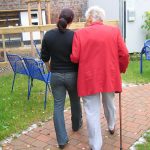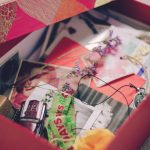Sometimes you may never know the value of a moment until it becomes a memory. Dr Seuss

Jane Mullins
We all have a story to tell about our lives, sometimes we enhance those stories with funny anecdotes, which, over time can become fact to us the more we recall them. In the end what really happened and what we remember happening may be very different over time. But does this really matter?
Our memories for events in our lives are coloured by those who we spent time with; families, friends, what we were doing; work, social life, what was the fashion, music, politics of the day etc. Even though we may have some similarities with people of our own age who may have shared common experiences, our specific stories are our own.
Sometimes where the facts become hazy, the emotions attached to certain memories are often still very real. Happy, sad, angry, joyful; everyone will have experienced strong memories in relation to certain life events, the birth of a child, school life, university or a first job, engagement and wedding, death of a loved one, anniversaries and holidays. Our lives are multi-coloured with feelings. This is the same for those who are living with dementia.
One great way to keep a connection together with your loved one who has dementia is to work together on your living stories. As mentioned before, get your photographs out, certificates, ornaments or souvenirs. You may wish to do this with a specific theme in mind such as holidays, hobbies, family life, jobs and bring together all the things that you can find around the home that are relevant to this.
It is a good idea to get a scrapbook & if you’re more technologically savvy you can create a digital living history so that you have a document that expresses the key moments and people in your loved one’s life, photographs are helpful here (do this for yourself also). This will help if your loved one has to go into hospital or if you have befrienders coming into your home, you have some vitally important information to hand if your loved one has difficulty expressing themselves about their own life.
Below are some ideas for your living histories:
Name (Maiden name where appropriate)
When you were born?
Where you were born?
Family members’ names (when growing up and throughout the life course)
What schools did you attend?
What was your favourite subject at school?
Did you have any pets?
Where did you work? What was your role?
Do you have a partner? Where did you meet?
Where & when did you get married?
Do you have any children? What are their names?
Do you have any grandchildren? What are their names?
Do you have any special friends?
What were/are your hobbies?
What were the big changes for you in your life?
What do you enjoy now?
What are your favourite kinds of music, books, food & drink?
What special memories accompany all these aspects of your life?
This is just a way of exploring and re-living your lives that may spark those stories, remember whilst you are stimulating each other’s memories take heed of the emotions that may emerge.
By Jane Mullins
Jane Mullins (RGN, Bn, PGcASR) is a dementia nurse consultant. She has worked on the Memory Teams of Bath and Cardiff, managed a Nursing Home and cared for older people in many hospital settings. Her PhD; A Suitcase Full of Memories explores holiday reminiscence activities for people with dementia and their partners.
 She is the creator of DUETcare, Dignity, Understanding and Empathy Training, specialising in training in Dementia and Care of the Older Person. She is involved in a number of creative projects including playfulness and the use of music and playlists for people living with dementia and their partners and families.
She is the creator of DUETcare, Dignity, Understanding and Empathy Training, specialising in training in Dementia and Care of the Older Person. She is involved in a number of creative projects including playfulness and the use of music and playlists for people living with dementia and their partners and families.
This column is here to help you understand what is happening and how the dementia may affect your loved one and offers tips and suggestions to help you. This column is not intended to replace your GP or Specialist Doctor, it is to give a guide to explain what may be happening to your loved one living with dementia and how you may be able to help through adopting interesting and helpful approaches.
Dementia affects people individually and different stages will come with different issues, therefore, the advice here is general and I would always recommend speaking with your doctor.





